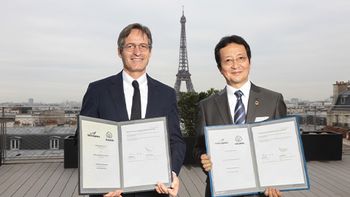
Investor group calls on biotech manufacturers' boards to be more forthright on biosimilars
Absence of agreed-on FDA guidance keeps biosimilars off the US market even as their use grows abroad
A new front is opening up in the ongoing debate over biosimilars and how they will enter the market in the US: activist investors. “Activist” might be too strong a word, because these investors are the institutional managers of trust funds, mostly for labor- or union-related organizations who manage benefit funds for retirees. The lead group is the UAW Retiree Medical Benefits Trust (Detroit); 18 other groups, representing $430 billion in assets, are members of the coalition.
This coalition wrote an “Investor Statement on Oversight of Biosimilar Issues” in August (available at www.uawtrust.org), requesting that the boards of 25 leading pharma companies “ensure that information provided to policymakers on patient safety is balanced, investor dollars used for political lobbying [are] aligned with shareholder interests, and disclosure on significant business partnerships is transparent.” These principles sound like good governance for any board, but the detailed language makes clear that these investors want biosimilars on the market sooner rather than later, and want pharma manufacturers to be more forthright in their dealings with FDA and the public on the safety and efficacy of biosimilars.
“The information that is being disseminated in the state and federal policy debates related to the dispensing, naming and oversight of the biosimilar market is imbalanced,” the Statement reads. “Companies seeking to downplay the patient safety record of European biosimilars have also challenged the capacity of the FDA to promulgate rules and determine when biosimilars may be substituted for biologics.”
The investor
Roche/Genentech has told the coalition that it will not sign the Statement, according to a report from
There’s a clear set of conflicting interests on the part of the institutional investors; on the one hand, they have funds invested in the very same biotech companies whose biologics pricing and patent-protection policies they are challenging. On the other hand, the disbursements from these funds go, in large part, to paying for the health benefits of their retiree members. That might be the reason that the Statement says nothing about divestiture from pharma companies who don’t sign the document.
For its part, FDA has generated several draft guidances on biosimilar evaluation and regulation, but none of them has been finalized. Even when such guidance does become available, it’s easy to predict that its details will be argued over by the biotech manufacturers.
Newsletter
Stay ahead in the life sciences industry with Pharmaceutical Commerce, the latest news, trends, and strategies in drug distribution, commercialization, and market access.




